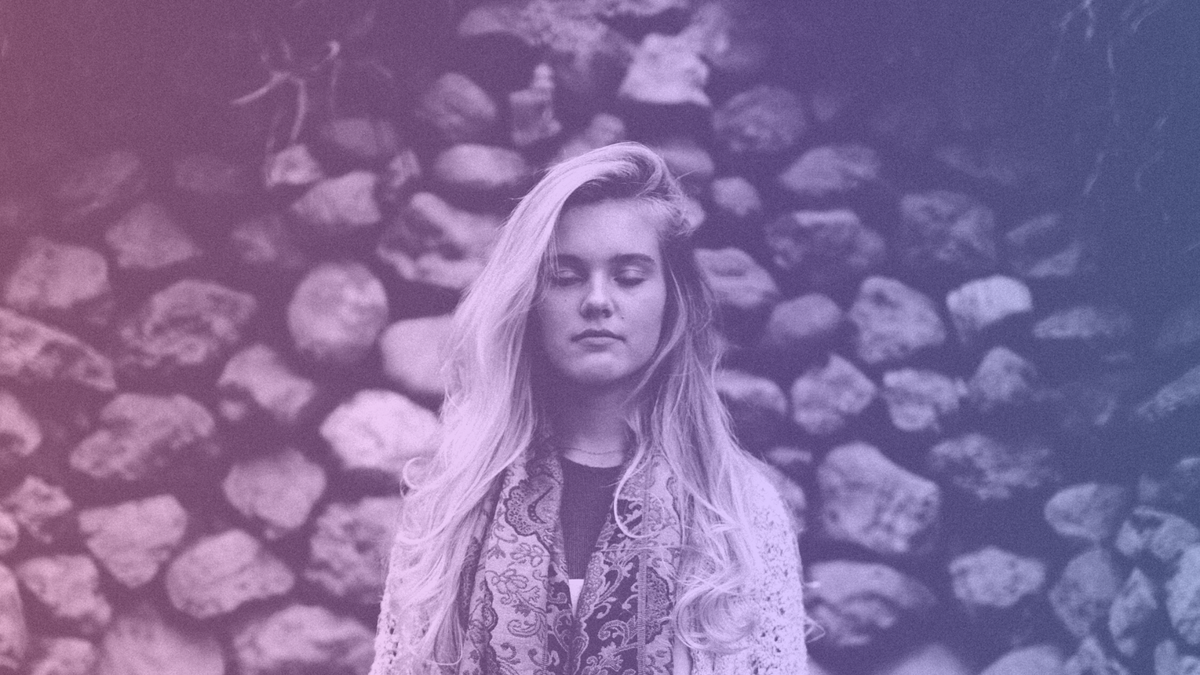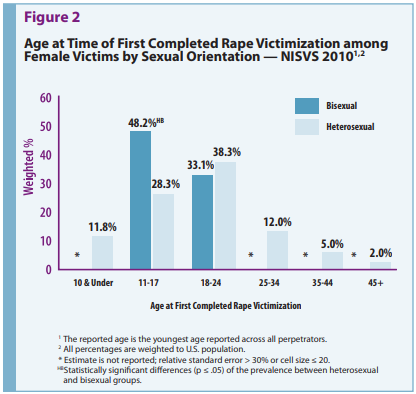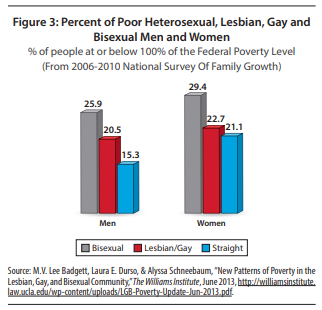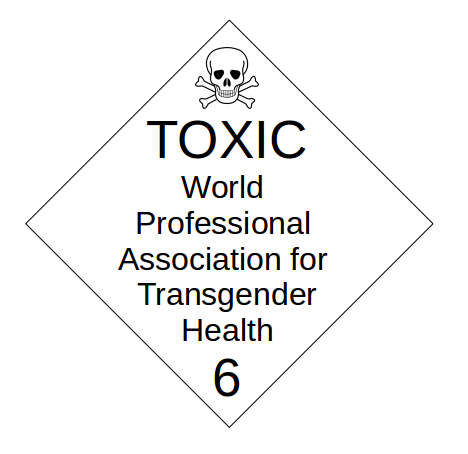Why Being Bisexual Matters
There are serious consequences to biphobia, especially for women

I recently wrote a story about coming out, accidentally, to my boyfriend’s family as bisexual. Since I am a woman in a relationship with a man, people tend to assume I’m straight until they get to know me. This is part of a problem called “bi invisibility.”
If you’re in a straight-presenting relationship, people assume you are straight. If you’re in a gay-presenting relationship, people assume you are gay. Unless you are polyamorous, there is no way for your relationship to be visibly bisexual.
When I published the story, one commenter on social media asked, “Why does it matter if she’s bisexual?”
Since I like to assume good faith, I decided to take the time to answer that question for anyone who might be curious. This is why being bisexual “matters.”
1. Bisexual women experience the highest rates of sexual violence
According to a 2010 report by the CDC, bisexual women are more likely to experience sexual violence or domestic abuse than both lesbians and heterosexual women.
74.9% of bisexual women report experiencing sexual violence, compared to 46.4% and 43.3% percent of lesbians and straight women, respectively. Bisexual women who’d experienced violence said they also suffered aftereffects like missing work or having symptoms of post-traumatic stress disorder 57.4% of the time. Only 33.5% of lesbian women and 28.2% of straight women said the same.

The majority of bisexual victims of rape report the assault occurred between the ages of 11 and 24. (The CDC did not have enough information on the first age of lesbian rape victimization to accurately report that data.) Of course, bisexual survivors of sexual assault rarely receive justice. Bisexual survivors are three times more likely to experience police violence when interacting with police.
2. Bisexual people have higher rates of mental and physical illness, and face stigma when seeking help
A 2012 report by the Centre for Citizenship, Identities and Governance, found that bisexuals experience high rates of depression, anxiety, substance abuse, self-harm, and suicidality when compared to gay men, lesbians, or straight people of either sex:
This has been found both internationally and in the UK specifically, and has been linked to experiences of biphobia and bisexual invisibility. A major Canadian study found bisexual men to be 6.3 times more likely, and bisexual women 5.9 times more likely, to report having been suicidal than heterosexual people (in both groups this was also higher than rates for gay men and lesbians).
The report even cautions against lumping bisexual people into studies on the mental health of lesbians and gay men, stating that doing so may lead to overestimating the mental health risks faced by these groups.
When bisexual people seek help for mental illness, they are met with stigmatization in the medical field. 11% of therapists attempted to convert their bisexual patients to either fully straight (7%) or fully gay (4%).
Bisexual people are also likely to have higher rates of physical illness. Bisexual women have a lifetime prevalence of any cancer of 17.6%, compared to 11.9% for straight women and 14.2% for lesbian women.
Yet, according to a 2012 report by the Equality Network, only 23% of bisexual respondents felt comfortable being open with their GP about their sexuality, compared to 68% and 58% of lesbians and gay men, respectively.
The Advocate reported on the impact of discrimination when accessing LGBT services on bisexuals:
“Respondents reported the most instances of biphobia when attempting to access services specifically for LGBT people, or through the U.K.’s National Health Service…
Those frequent encounters with biphobia led two-thirds of respondents (66 percent) to say they feel they must identify as straight, while 42 percent said they just identify as gay when accessing services.”
3. One in three bisexual women live in poverty
The results of all this violence and illness compounds, leaving many people behind. Both bisexual men and women experience higher rates of poverty than their straight or gay counterparts.

A report by Movement Advancement Project, BiNet USA, and the Bisexual resource centre found that, “25% of bisexual men and 30% of bisexual women live in poverty, compared to 15% and 21% of heterosexual men and women respectively and 20% and 23% of gay man and lesbians.”
20% of bisexuals report discrimination based on their sexual orientation, and 60% report hearing anti-bisexual comments at work. It’s no surprise, then, that bisexual people are also more likely than either gays or lesbians to not be out to their coworkers (49% versus 24%, respectively).
Faith Cheltenham, a black bisexual woman, shared her experience in the report of trying to come out at work:
Nearly every single time I’ve come out as a bisexual woman in the workplace, I’ve experienced severe sexual harassment. Coworkers have made inappropriate jokes, made sexual advances, and shown me sexually graphic photos. I’ve had several jobs where I felt unsafe.
In many cases, human resources refused to take action, citing that she had brought the harassment on herself by coming out.
Bi visibility matters
Bisexual visibility matters because biphobia has been linked to all of the above reported negative outcomes. Biphobia comes in various forms, including the denial of the existence of bisexuality, negative stereotyping (such as “bisexuals are promiscuous”), over-sexualization, exclusion from both straight as well as LGBT resources, and marginalization through intentional discrimination.
Bisexuality is so often left out of representation in media, even “LGBT” media, that there is an entire TV Tropes page titled “No Bisexuals”. Even when characters express attraction towards people of both sexes, they are usually framed as “rejecting labels” rather than accepting the appropriate label: bisexual. With one, notable, exception:
So, dear stranger on the internet wondering why it “matters” if someone is bisexual, does this answer your question?
Originally published in Fearless She Wrote, CC-BY-SA, M. K. Fain
The generous support of our readers allows 4W to pay our all-female staff and over 50 writers across the globe for original articles and reporting you can’t find anywhere else. Like our work? Become a monthly donor!
Enter your email below to sign in or become a 4W member and join the conversation.
(Already did this? Try refreshing the page!)




Comments